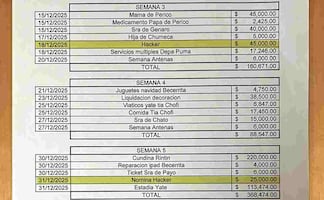Más Información

"El Güero Palma", fundador del Cártel de Sinaloa, tramita amparo; acusa incomunicación y tortura en el Altiplano

Presentan iniciativa para obligar a legisladores a trabajar 48 horas; aquí se tiene que poner el ejemplo": diputada de MC

Paco Ignacio Taibo II desata polémica por dichos en evento de Iztapalapa; "todo el mundo tiene un primo o una prima pend...", dice

Sheinbaum: Pago de adeudos fiscales de TV Azteca y Elektra continúa pese a concurso mercantil; televisora ya pagó, señala

CDMX instala Gabinete con alcaldes rumbo al Mundial; Clara Brugada anuncia 2 mil obras y refuerzo de seguridad
But, boy, do they hold great speeches about it”
They promised a “ Global Britain ,” a brave new world where the United Kingdom would recover its sovereignty from the bureaucrats of Brussels and apply its own laws on trade, immigration, and justice.
Brexit
, they said, would enable the United Kingdom to forge on its own terms a new trade deal with the European Union , “the easiest in human history,” yet less than 10 weeks from the March 29 deadline , the long-awaited day enshrining the departure after 45 years of “ subjugation ,” the picture looks dire and murky.
The latest chapter of the drama unfolding has been the reiteration of Prime Minister Theresa May ’s plan for a divorce agreement with the European Union, this time seeking further concessions from the bloc to prevent customs checks on the border between the Republic of Ireland and the British province of Northern Ireland .
The problem: last week the proposal was rejected by 432-202 members of Parliament, the biggest defeat in modern UK history .
Hours later, May survived a motion of no-confidence by 325 votes to 306 tabled by the Labour opposition leader Jeremy Corbyn .
May is now hostage of the hard Brexiteers , a small yet influential faction from her Conservative Party able to torpedo any deal involving the risk of a permanent backstop, the customs union policy proposed for the Irish border while a definitive agreement is found.
The Prime Minister is also hostage of the 10 Democratic Unionist Party MPs —the Northern Ireland Protestants loyal to the British crown—who saved her in the no-confidence vote and object as their Tory allies to the fact that Britain cannot unilaterally end the backstop.
However, the EU’s chief negotiator Michel Barnier rejected May’s hopes of a so-called sunset-clause on the backstop , after which it would cease to have any effect, declaring that the deal agreed with her in 2018 was “the best deal possible.”
For his part, Corbyn declined May’s invitation to discuss an alternative plan , unless the prospect of a no-deal with the European Union is taken off the table by her “ zombie governmen t.”
And what about the Brexiteers mentioned above? What are they doing now? Let’s take a look at some of the most notorious leaders of the populist movement which won the 2016 referendum using blatant lies and half-truths as well as the support of U.S. president Donald Trump’s guru Steve Bannon and Cambridge Analytica .
Boris Johnson
Once acclaimed by his followers as “ a man from the Renaissance ,” the flamboyant Johnson epitomizes the elitist essence of the Tories .
Born in New York from wealthy English parents, Johnson studied Classics at Oxford and worked as a journalist at The Times , yet he was sacked for falsifying a quotation.
Johnson’s greatest success came in 2008 defeating Labour incumbent Ken Livingstone in the London mayoral election; during his two terms in office, he championed the City and afterward returned to the House of Commons to endorse Brexit .
Appointed by Theresa May Secretary of State for Foreign and Commonwealth Affairs in 2016 , Johnson promised to reactivate the old imperial trade routes to India , Australia , and the Americas .
He acted as though the UK could have it all with the European Union: full control over immigration , complete freedom to establish commercial agreements with other countries , and all the advantages of the European Union membership they were giving up .
The “ bombastic ” Johnson believed that Germany would be able to impose a favorable Brexit deal to its 27 EU partners on behalf of Downing Street, just as the Federal Chancellor Angela Merkel did during the Greek crisis in 2015 .
The Foreign Secretary called for Trump to be awarded the Nobel Peace Prize and described Turkish President Recep Tayyip Erdogan in a “ poem ” as the “ Wankerer from Ankara ,” before resigning in 2018 along with Brexit Secretary David Davis in protest for May’s strategy.
Johnson remains popular with the Tories as a possible substitute of the embattled May; these days, he declared that canceling Brexit would be “ utterly pathetic ” yet according to the English press, he is coming to terms with reality and is preparing to accept the temporary Irish backstop.
Jacob Rees-Mogg
Considered a reactionary and traditionalist , this lawmaker was key in the internal opposition to David Cameron , May’s predecessor in Downing Street, as well as in the rejection of the proposed deal with the European Union which, he remarked, would transform the UK into a “ slave state .”
On Wednesday, Rees-Mogg urged May to suspend Parliament if both Labour and Tory attempts to block a no-deal Brexit are successful.
He also dismissed speculation that his group of backbenchers, as Johnson, were softening their stance towards May’s plan, insisting: “As long as the backstop is there, I won’t vote for this deal.”
Nigel Farage
Member of the European Parliament
since 1999 , Farage was a forerunner of the diehard “ eurosceptics ” and right-wing populists now in vogue around the world.
He led the marginal United Kingdom Independence Party ( UKIP ) to an astounding victory in the EU Parliament elections in 2014 .
It was the first time a political party other than the Labour Party and Conservative Party had won the popular vote in a national election since 1906.
In 2016, Farage remarked to his European peers that a hypothetical failure for Brussels to forge a trade deal with an exiting UK would “be far worse for you than it would be for us.”
Associated with Bannon, he campaigned for Trump in the U.S. elections and was the first British politician to speak to the Republican magnate after his triumph.
A former Tory , Farage rejected this month the offer made by Rees-Mogg to rejoin the party and said he is ready to fight the European election in May if Brexit is delayed.
The UK, Farage added, should “just leave” the EU without a deal, on World Trade Organization terms, yet he did not see “the will” from the Prime Minister and the government.
Sir James Dyson
The inventor of a bagless vacuum cleaner , which works on the principle of cyclonic separation, dealt a severe blow to the Brexiteers’ morale this week after it was announced he is moving Dyson’s HQ to Singapore , a tax haven where the company installed its electric car plant last year.
Ahead of the 2016 referendum, Dyson said the UK would “liberate” its economy and be able to create more wealth and jobs outside the European Union “ dominated and bullied by the Germans .”
At the time he rubbished claims Britain would be shunned in international markets , branding it “ absolute cobblers .”
Singapore
was often presented as a model for the post-Brexit UK .
Ironically
, three months ago the tiny Asian country signed with the EU a landmark free trade agreement .
Editing by Sofía Danis
More by Gabriel Moyssen
Noticias según tus intereses
[Publicidad]
[Publicidad]











